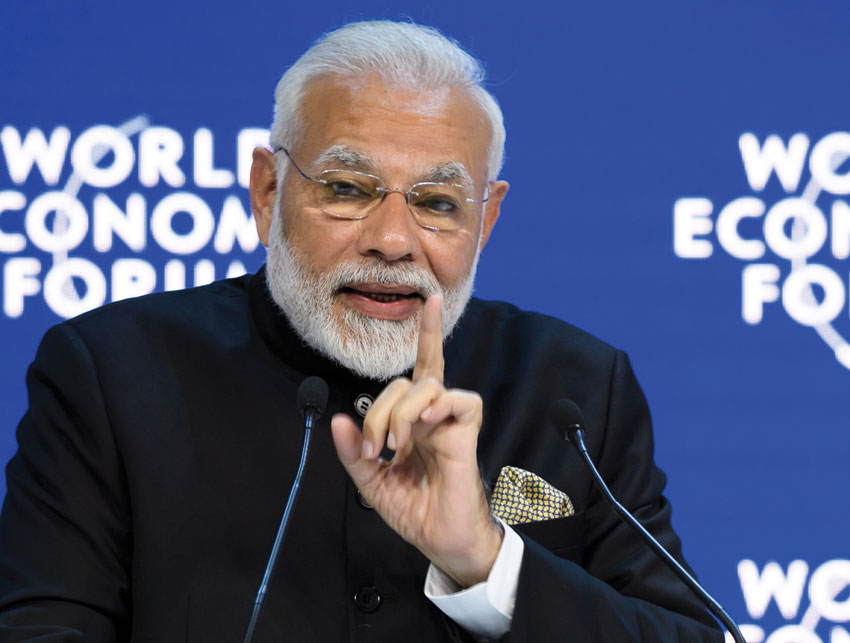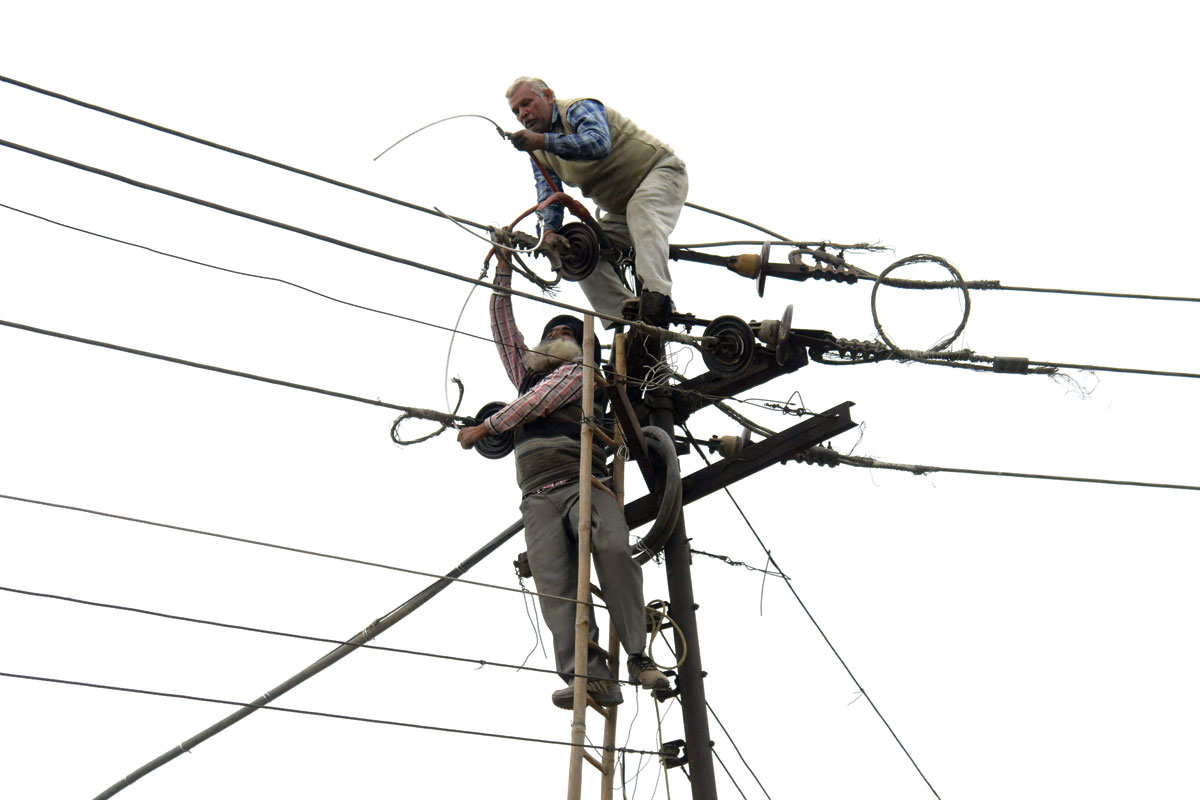No More Free Power in India
Employees of the Indian Punjab State Power Corporation Limited repair electrical wires in Amritsar, March 9, 2017. (Narinder Nanu/AFP/Getty Images)
No more free electricity in India. Could this be the next big reform of the Modi government after GST? The blueprint to amend India’s Electricity Act has been put in place by the union power ministry. The next step is approval in Parliament. So far, political expediency has skewed the tariff structure in India’s power sector with individual consumers, especially in rural areas and the agriculture sector, charged rates that are well below cost of generating electricity, writes Siddharth Srivastava.
In urban areas, including national capital Delhi or commercial hubs such as Gurgaon, tariffs slabs for lower levels of power consumption have been kept artificially low. The Delhi government pays subsidy directly to the distribution companies that incur the losses. Such an approach is never good for the financial health of state finances and utilization of tax payers money. Availability of cheap power, meanwhile, encourages theft and wastage as electricity is seen as a freely available resource. To make up for the large losses, power distribution companies or discoms, that buy electricity from generators at flat prices, charge very high rates from bulk consumers which is contrary to paradigms that exist in advanced countries.
Bulk consumers, that are forced to subsidize small consumers, meanwhile, are bogged down by escalated costs that impacts bottom lines and growth. Thankfully, India’s power sector paradigm is set to change if the Modi government is able to push through the changes envisaged. In a move which will be big relief to industrial and commercial outfits, the union government is planning to remove cross-subsidy charges levied on large power consumers.
This was stated recently by power minister R.K. Singh. The minister said the government is planning to amend the national tariff policy to activate the new norms. “Some states are charging as high as 100%. The present system of two-part tariff including fixed costs and energy charges will continue, but we want to do away with cross-subsidy charges. Rather states should give direct benefit transfers to targeted consumers,” Singh said. “The union power ministry will consult state governments on removal of cross-subsidy charges,” he added.
The latest moves by New Delhi are in line with attempts to restructure financial health of discoms under the Ujwal Discom Assurance Yojana (UDAY) scheme that has met with a fair bit of success till now. Proposals to further fine-tune functioning of discoms and overhaul of the power sector are likely to be part of Electricity Act amendment Bill that should be tabled in Parliament in the ongoing budget session. Apart from suggesting direct benefit subsidy transfer mechanism to power consumers like it has been successfully done in the case of cooking gas, the new Bill is likely to impose steep penalties on discoms for load shedding.

No More Power Cuts
“Gratuitous load-shedding because you don’t want to buy electricity will not be accepted. If a distribution licensee fails to supply electricity within the period specified, he shall be liable to a penalty,” Singh said. The minister added that a license renewal mechanism for discoms to keep check on power supply capabilities of the utilities will be introduced. “Discoms will have to apply for renewal of licenses every five years. Licenses of discoms that do not have adequate long-term power tie ups will not be renewed,” Singh added. The renewal of discom licenses is linked to one of the most awaited reforms, that has been spoken about for many years.
The Bill is likely to incorporate the proposal to separate power supply and network maintenance services and introduce multiple licensees for single area. This would mean that the consumer will no longer be at the mercy of a single distribution company, often state-owned. This change will not be easy to implement as states oppose loss of control over discoms that are used to extend freebies for electoral gain. However, with UDAY, New Delhi has a greater say in the way discoms function due to which states will find it difficult to say no.
The Modi government has been pushing ahead with several economic reform measures, some that have been welcomed and others such as demonetization that has been severely criticized.
In the months post GST implementation, significant achievements include Bankruptcy Code and the Aadhaar Bill. However, there has not been much progress in easing land acquisition or labor laws, which are necessary to boost infrastructure and employment growth.
In this context, 24-hour electricity that can be delivered efficiently is a key focus area. To deliver on the promises, some of the changes proposed in the Electricity Act will need to be pushed to fruition. With countdown to general elections due in the summer of 2019 underway, Modi and his team have their task cut out. The ongoing budget session could perhaps be the best chance for the government to push through the much-delayed reforms in power sector.


